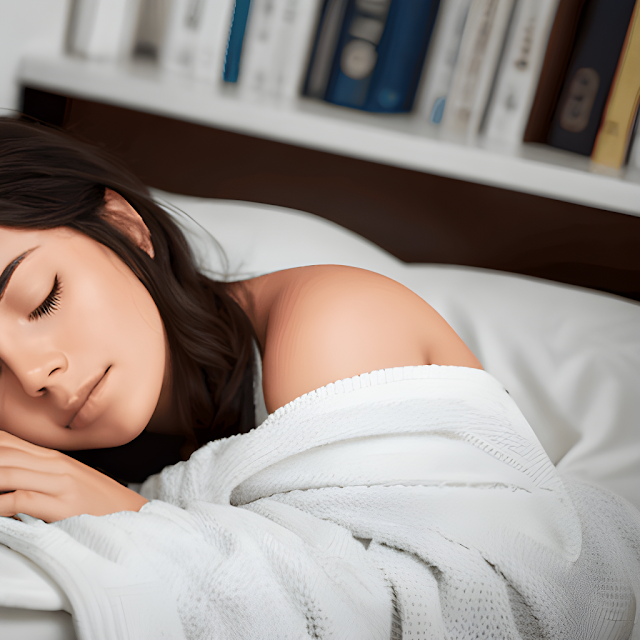Sleep Hygiene: Tips for Improving Your Sleep Quality and Overall Health
Introduction:
Restful sleep plays a crucial role in maintaining our overall health and promoting well-being. Yet, in today's fast-paced and digitally connected world, many people suffer from poor sleep quality and inadequate rest. Sleep hygiene refers to a set of practices and habits that promote healthy sleep patterns and improve the quality of sleep. In this article, we will explore some essential tips for enhancing sleep hygiene to achieve better sleep and, consequently, better overall health.
1. Establish a Consistent Sleep Schedule
Ensuring a regular sleep routine is a key cornerstone of proper sleep hygiene. Going to bed and waking up at the same time every day, even on weekends, helps regulate your body's internal clock, the circadian rhythm. A consistent schedule allows your body to anticipate when it's time to sleep, making it easier to fall asleep and wake up feeling refreshed.
2. Create a Relaxing Bedtime Routine
Establishing a soothing bedtime routine can effectively
communicate to your body that it's time to relax and get ready for a
restorative sleep. Partake in soothing activities like reading a book, engaging
in gentle yoga, or enjoying a warm bath. Avoid stimulating activities like
watching intense movies or using electronic devices with bright screens, as
these can disrupt the production of the sleep hormone melatonin, making it
harder to fall asleep.
3. Optimize Your Sleep Environment
Creating an optimal sleep environment is essential to ensure
a restful night. Ensure your bedroom is cool, peaceful, and devoid of any
light. Invest in a comfortable mattress and pillows that support your body and
promote healthy spinal alignment. Consider using blackout curtains to block out
any external light that may interfere with your sleep.
4. Limit Daytime Naps
While short power naps can be refreshing, excessive daytime napping can disrupt your nighttime sleep. If you find it challenging to fall asleep or stay asleep at night, try to limit naps to 20-30 minutes during the day.
5. Watch Your Caffeine and Alcohol Intake
The consumption of caffeine and alcohol can have a considerable impact on the quality of your sleep. Avoid consuming caffeine, found in coffee, tea, and energy drinks, in the late afternoon and evening. Although alcohol may initially make you feel drowsy, it can disrupt your sleep cycles, leading to fragmented and less restorative sleep.
6. Stay Active During the Day
Regular physical activity can contribute to better sleep, but try to time your exercise sessions earlier in the day. Exercising too close to bedtime can make it harder to fall asleep, as it raises your body temperature and increases alertness.
7. Limit Screen Time Before Bed
Electronic devices emit blue light, which suppresses melatonin production, affecting your ability to fall asleep. To improve your sleep hygiene, avoid screens at least an hour before bedtime. Instead, opt for reading a book or engaging in relaxation techniques.
8. Manage Stress and Anxiety
The presence of stress and anxiety can profoundly disrupt your sleep patterns. Practice stress-reducing techniques, such as meditation, deep breathing exercises, or journaling, to help calm your mind before bedtime.
9. Watch Your Diet
Be mindful of what you eat, particularly close to bedtime. Heavy meals, spicy foods, and excessive fluid intake before bed can cause discomfort and disrupt your sleep. Opt for light, easily digestible snacks if you feel hungry before sleep.
10. Seek Professional Help if Necessary
If you consistently struggle with sleep despite practicing good sleep hygiene, consider seeking help from a healthcare professional or a sleep specialist. They can assess any underlying sleep disorders or medical conditions that may be affecting your sleep and provide appropriate treatment.
Conclusion:
In conclusion, prioritizing sleep hygiene is essential for improving your sleep quality and overall health. By adopting consistent sleep schedules, creating a calming bedtime routine, optimizing your sleep environment, and making mindful choices throughout the day, you can enhance your sleep and wake up feeling more refreshed and rejuvenated. Remember, sleep is a powerful tool for supporting your physical and mental well-being, so invest in it wisely for a healthier and happier life.



.png)




